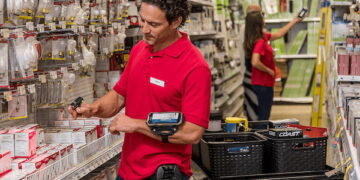Crédito: fuente
Paris — More than five years after the deadly attack on the Paris offices of French satirical newspaper Charlie Hebdo, 14 people went on trial Wednesday for their part in helping the three attackers, who were all killed by police. On January 7, 2015, brothers Saïd and Chérif Kouachi entered the newspaper’s offices and killed 11 people, including 8 editorial staffers.
Charlie Hebdo’s director, Stéphane Charbonnier, better known as «Charb,» was among those shot dead.
As they fled the scene, the brothers killed a policeman who had been posted on guard outside the building, following numerous threats to the newspaper.
Those threats related to Charlie Hebdo’s publication of cartoons depicting the Prophet Muhammad. Many Muslims consider any portrayal of the prophet’s likeness sacrilegious, and millions were offended by the cartoons.
As the trial opened on Wednesday, the newspaper republished some of the cartoons, under the headline: «Tout ça pour ça» (All that for this).
The paper now operates out of a secret, heavily guarded location, and its journalists continue to receive threats, but its defiant director Laurent «Riss» Sourisseau, who was injured in the attack, vowed in the new edition: «We will never give in. And we will never give up.»
AFP/Getty
It has taken five and a half years for the case to come to trial. In that time, investigators have pieced together the chain of events that led to the attacks, first on the Charlie Hebdo offices, then two days later at a Jewish supermarket in a Paris suburb.
Initially police thought the second attack was the work of a copycat. However, in building their case, investigators found the two were closely coordinated, and that the Kouachi brothers and Amedy Coulibaly — who killed a policewoman on January 8 and then four men during the hostage-taking at the Hyper Cacher supermarket on January 9 — had several accomplices in common.
On trial are 14 people accused of helping the Kouachi brothers and Coulibaly. They face a range of charges including providing material support, funding, buying weapons, and procuring a getaway car for the attackers. They face possible sentences between 10 years and life imprisonment.
Only 11 of the accused were in court Wednesday. Two of the other three are missing, presumed killed in Syria. The third, Coulibaly’s religious wife, was reportedly seen some months ago at an ISIS camp in Syria.
In a rare decision for a terrorism trial in France, the judges agreed that the high-security court proceedings would be filmed for posterity. There is no live broadcast from inside the court, as that practice is forbidden under French law.
Few people will be allowed in the courtroom, where anti-coronavirus measures have halved the number of seats available to the press, public, and the more than 200 civil parties to the case. Those civil parties include some of the people taken hostage at the Jewish supermarket, and relatives of the 17 people killed in the three attacks.
Francois Mori/AP
«This trial is an important moment for them [victims and survivors],» said Marie-Laure Barré and Nathalie Senyk, lawyers for victims of the Charlie Hebdo attack, in a statement to French news agency AFP. «They are waiting for justice to be done, to find out who did what, knowing that those who pulled the trigger are no longer there.»
A total of 144 witnesses and 14 experts will be called during the trail, which is set to last 11 weeks, ending on November 10.
Getty











